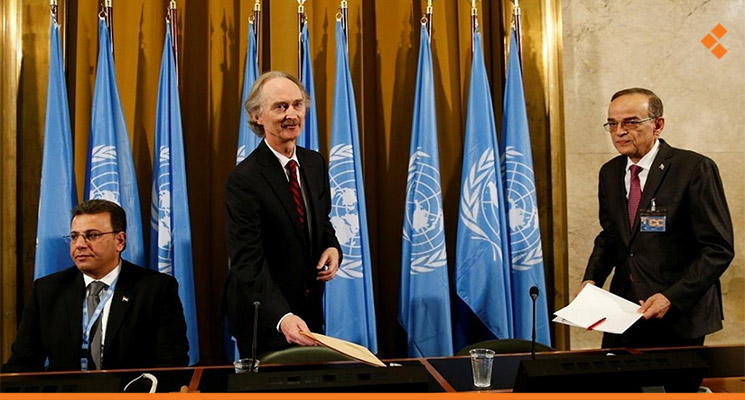The Astana talks, held on June 20th and 21st in the Kazakh capital, emphasized the crucial role of the Syrian Constitutional Committee in preparing and advancing constitutional reform, which requires popular approval. The statement called for the ninth round of committee meetings to convene as soon as possible.
According to sources cited by the Lebanese newspaper Al-Akhbar, the participants in the talks agreed to schedule the ninth round of meetings of the Constitutional Committee for August or September. They are currently deliberating on an alternative location to host the committee’s work, considering options such as Muscat and other cities like Amman. However, the final decision is still pending. It was also mentioned that the upcoming meetings would follow a new format, involving joint committees convening for extended durations compared to previous sessions.
Brussels: Syrian Dissidents Launch Initiative for “Third Republic”
In an interview with The New Arab, an unnamed member of the Constitutional Committee representing the “opposition” shared that the specific venue for the ninth round has not been determined yet. The negotiating committee has proposed Cairo, Riyadh, or Kuwait as potential locations for the committee’s meetings.
As for the position of the UN special envoy to Syria, Geir Pedersen, the source clarified that he is open to holding meetings in any country as long as they are conducted under the auspices of the United Nations.
Following a significant development, the opposition’s Negotiating Committee recently concluded a meeting to reunify its components in Geneva on June 3rd and 4th. This marked the first such gathering in three years and aimed to address regional and international events impacting the Syrian issue. Furthermore, the committee sought to restore its legal status by uniting its diaspora, aligning with Arab and regional initiatives in the pursuit of a solution to the Syrian crisis. During the meeting, it was agreed upon to adopt a more flexible approach, including engaging in direct dialogue with Damascus, free from any restrictions or preconditions.
Badr Jamous, the head of the negotiating body, expressed the readiness of the Syrian opposition to engage in direct negotiations with Damascus on all matters. In a statement to the Russian agency Sputnik, he emphasized that the Syrian Negotiation Commission firmly believes in a political solution as the foundation, with Resolution 2254 serving as their guiding principle for a ceasefire and political settlement.
This article was translated and edited by The Syrian Observer. The Syrian Observer has not verified the content of this story. Responsibility for the information and views set out in this article lies entirely with the author.


